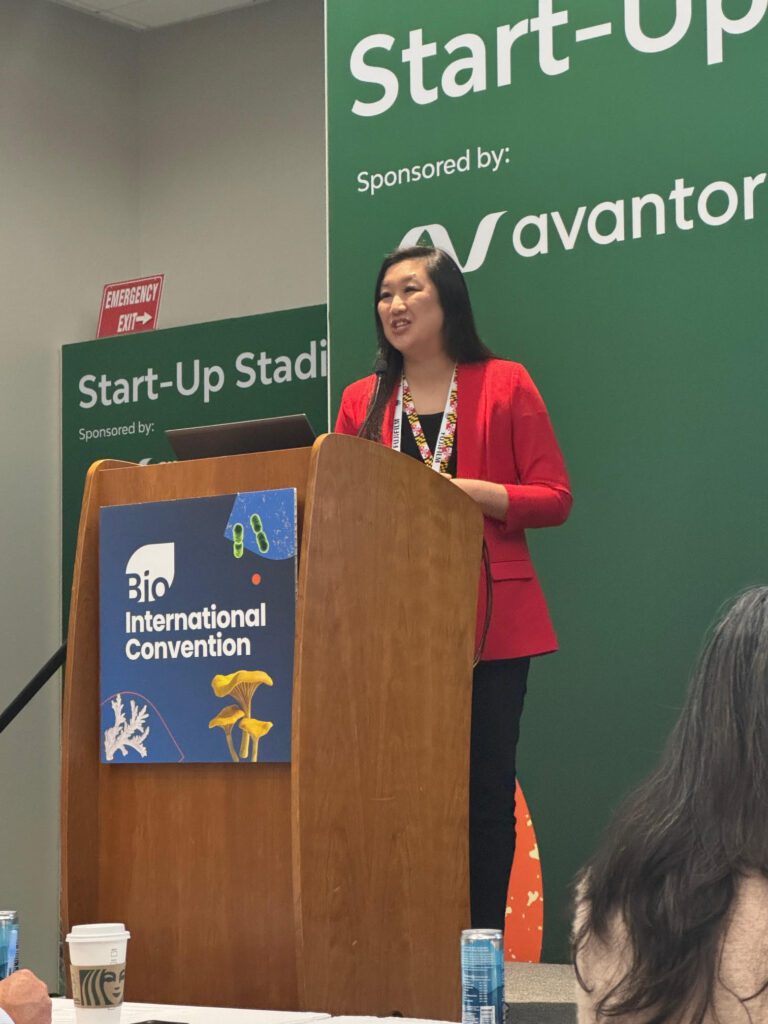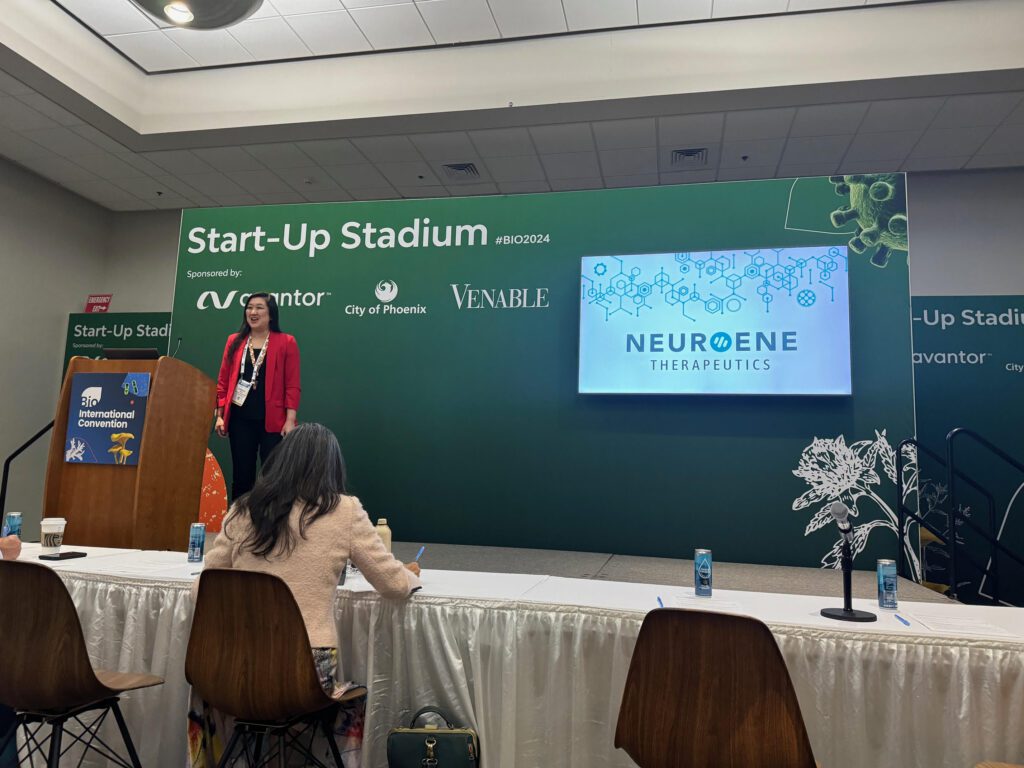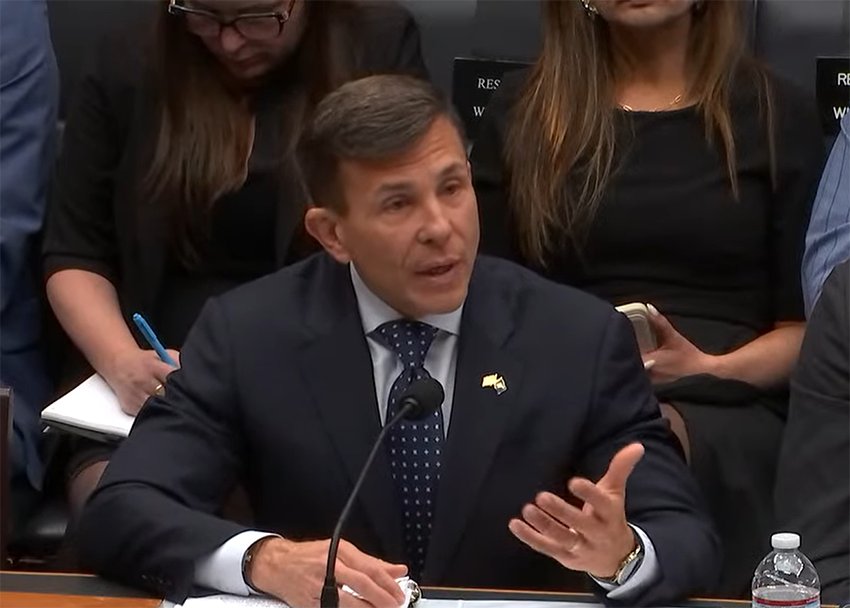Neuroene Therapeutics is developing mitochondrial-protective small molecules for epilepsy, Parkinson’s, and mitochondrial diseases. The company’s CEO Sherine Chan, Ph.D., co-founded Neuroene with medicinal chemist C. James Chou, Ph.D., when they were previously faculty at the Medical University of South Carolina.
Neuroene’s groundbreaking science resulted in it being named the Emerging Company winner of the Start-Up Stadium at the 2024 BIO International Convention in San Diego, hosted by the Biotechnology Innovation Organization (BIO).
Bio.News caught up Neuroene Therapeutics’ co-founder and CEO Sherine Chan, Ph.D., after the event to learn more about the company.
Turning a passion into a career
“I have been passionate about mitochondrial biology since my undergrad days,” mitochondrial biologist Chan told Bio.News. “I first worked with Jim Cummins, Ph.D., back in Australia at Murdoch University, on investigating the roles of mitochondrial DNA (mtDNA) mutagenesis in male infertility.”
After working with Cummins, who she calls an “awesome mentor,” she joined Bill Copeland, Ph.D., at his lab at the National Institute of Environmental Health Sciences (NIEHS) at the National Institutes of Health in North Carolina’s Research Triangle Park. There, her focus was on POLG, the mtDNA polymerase, which is a major locus for many mitochondrial diseases.
“It was during my postdoctoral fellowship there that I realized that mouse models for mitochondrial diseases have limitations and could be complemented by other types of animal models to look at early life effects. When I started my faculty position at the Medical University of South Carolina (MUSC)–where I still retain affiliate Associate Professor status–my laboratory developed several new zebrafish models of mitochondrial dysfunction through toxic exposures and genetic mutations,” she said.
These models recapitulated many of the effects seen in human disease, which her laboratory had “used to understand disease progression in early life.” The zebrafish models “have the additional benefit of having excellent higher throughput capabilities for drug discovery and toxicology studies. As such, we have discovered that our novel compounds prevent defects in these models, and we continue the drug development path for mitochondrial disease as a result.”
The science behind the start-up and an optimistic future
“Mitochondria are the energy powerhouse of the cell, and the neurons in particular need a lot of energy for their function. So, mitochondrial dysfunction is a huge problem in neurological diseases, and yet, this is a critical gap that needs to be filled – we really need new treatments that promote mitochondrial health,” Chan explained. “Our unique, patented compounds protect mitochondrial health, thereby also protecting neuronal health, and we have shown that they are protective in animal models of neurological diseases,” Chan added.
“We have two lead compounds, one for Parkinson’s and one for epilepsy. Our epilepsy lead has FDA Orphan Drug Designation for a rare epilepsy known as Dravet Syndrome. If we can get these compounds all the way to patients, it’ll be a great boon because these molecules are differentiated from those currently on the market,” said Chan.
“We are very excited about our pipeline moving forward and optimistic for what it will mean in developing the science that can improve patient outcomes,” Chan enthusiastically told Bio.News. The start-up’s Neuro Program has a lead compound focused on Dravet Syndrome and pharmaco-resistant epilepsies, and a lead for Parkinson’s. These are at the pre-clinical stage, ready for IND-enabling studies.
Additionally, Neuroene has its histone deacetylase (HDACi) program in the discovery stage.

‘Patients are the reason why we do it’
“At Neuroene, we are committed to innovating so that patients can ultimately have hope for better outcomes,” said Chan. “Patients are the reason why we do it, why we’re doing all of this. I’ve talked with many of them and their caregivers because we want to understand what their day-to-day is like so as to hopefully change their quality of life.”
“The Dravet Syndrome Foundation has been very supportive, and both they and the Epilepsy Foundation have one of our lead molecules on their websites as pipeline molecules, which is awesome,” she added.
Being a 2024 Start-Up Stadium winner and resilience as a founder
Chan said winning the Emerging Company award at the 2024 BIO International Convention is “a fantastic honor.”
“One of the great things about winning the Start-Up Stadium is that it really helps us to get the word out about the work we are doing to help patients and provides us with validation that we are on the right track,” she noted. “As a small company that has recently relocated to the Washington, D.C. area, to have won this and now have this connection to BIO means everything,” she added. Neuroene recently their lab to the JLABS@Washington, D.C. incubator and are headquartered in Kensington, Maryland.
BIO 2024 also provided the company with the chance to meet investors and potential partners, noted Chan.
“Unfortunately, the current financing environment has been difficult, especially for raising funds for preclinical assets,” she said. “We’re at the point where we need a lot of funds for IND-enabling studies, which are needed prior to clinical trials.” At the Convention, the company “had a lot of great meetings and follow-ups,” and wants to meet more who are interested in a mitochondrial-protective therapeutic.
‘Go for it!’
What’s her advice to founders and potential founders?
“Go for it!” Chan emphatically declared. “If you believe that what you are developing can make a huge difference in the lives of patients, you should definitely go for it.”
“There’s an illuminated sign at JLABS that says, ‘The patients are waiting,’ which is great motivation for us all,” she concluded.




